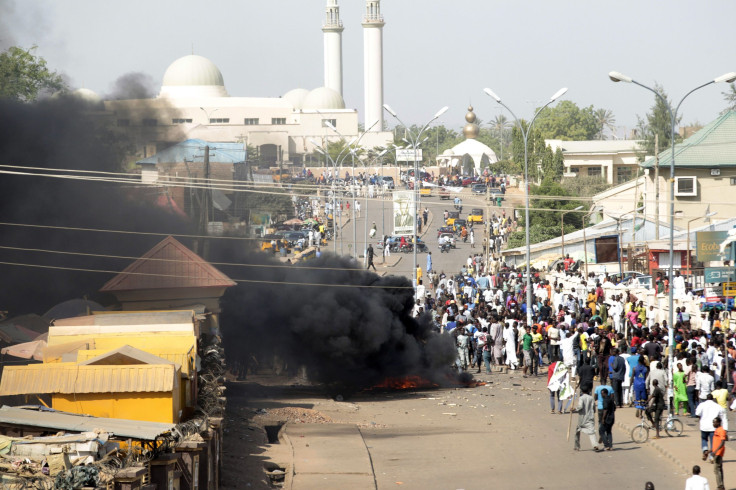Nigeria Suicide Bombings: Kano, Potiskum Separate Attacks Kill At Least 18

Two separate of suicide bombings Tuesday at bus stations in northern Nigeria have left at least a total of 18 people dead and nearly 20 more injured. The most recent instance happened late Tuesday afternoon, local time, in Kano, the largest city in northwestern Nigeria, with reports of 12 people being killed there after two female suicide bombers attacked a bus station, according to Anadolu Agency, a state-run press agency in Turkey. The death toll included the bombers.
Hours earlier in the day, a suicide bomber in the northeastern city of Potiskum carried out a similar attack at a bus station there, killing 13 people and injuring more than 30 others, the BBC reported. The attacker tried to board a bus that would have been headed for Kano before detonating the explosive device.
Two days prior, Potiskum fell victim to a female suicide bomber who killed five people and wounded dozens more near a busy market. The Chief Security Officer, who was injured in Sunday’s blast, said the female bomber eluded surveillance before she carried out her deadly mission. “The lady was pacing around at the gate for sometime, but since she could not have the courage to seek entrance, she decided to release her trigger at the gate, killing five people and injuring several others,” Bala Lawan said, according to Channels Television, an independent TV station broadcasting in Nigeria.
2 suicide bombers kill 12 people in Kano, others injured http://t.co/4uapUVzZcu pic.twitter.com/vM17U0DO6q
- Y! Online (@YNaija) February 24, 2015Kano, Nigeria’s second biggest city, has also been the target of previous bombings, most recently in November 2014, when more than 100 people were killed after two car bombs exploded outside of a mosque. Another car bomb detonated in May 2014, killing a 12-year-old girl among three other casualties, according to the BBC.
Another Teenage Female Suicide Bomber Strikes Again In Potiskum, Kills 15 In A Bus Station - http://t.co/UiiIT54HMu pic.twitter.com/FnzT51Rv27
— urbansturvs.com (@urbansturvs) February 24, 2015Tuesday’s bombings bear all the signs of an attack from Boko Haram, the Islamic militant insurgency that has launched a siege across Nigeria and beyond in an effort to disrupt the country’s national elections that were rescheduled for March 28. The elections were previously planned for Feb. 14 but had to be postponed after the military cited a need for more time to stabilize Nigeria because of Boko Haram.
© Copyright IBTimes 2024. All rights reserved.












